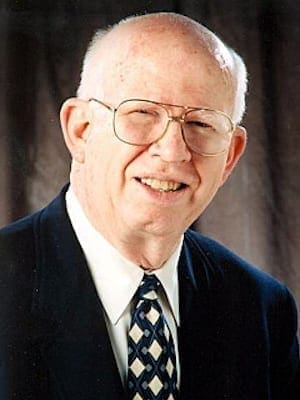The cashier and I were concluding our discussion about the “Say Something Nice” button I was wearing when I handed one to the man who had just walked up.
“Fat chance,” he said looking at the button. “Those guys in Washington set a bad example.”
Back at home, I clicked on the national news in time to hear Sen. Lindsey Graham (R-S.C.) say, “I like the president personally. He is a deliberate man and that is what we need at this time.”
He then said he felt the president should act more boldly in Libya, but he expressed his differences with the president in very civil terms.
Most of us would prefer to believe it’s those other guys – Congress, the far right, the far left, the lunatic fringe, the Tea Party – who are responsible for the angry rhetoric that fills the airwaves.
The truth is that the professional merchants of hate and disrespect can only exist where there is a market for their product. Our silence in the face of outrageous disrespect gives permission for their rants.
Over and over again, those of us who promote a more civil discourse are accused of trying to stifle debate or, worse, represent a particular political faction. The truth is that we are promoting the behavior represented by Graham’s example.
Of course, Graham has paid a price for his bipartisan efforts. He has been censored by several Republican groups at home for trying to get along with the opposition.
Our democracy depends on lively, informed, healthy political debate. No American wants a society where nothing is challenged and everything goes. Debate is the life’s blood of our way of life. If you have a better idea, put it on the table and let’s see if it can stand up to rigorous scrutiny.
It is not the other group or the other person who is responsible for gutter language in our national debate, or for the shameless and often baseless attacks on individuals. It is any of us who engage in such tactics or fail to challenge them when and where we encounter them.
Years ago my father told me a wonderful story. At a meeting, the featured male speaker looked over the crowd and said, “Since I see that there are no women present, I have a great story to tell you.”
At this point a man seated near the back of the room rose to his feet and responded, “No, there are no ladies present, but there are lots of very fine gentlemen here.” The speaker got the message.
Such a reaction requires courage on our part.
When I was a relatively new member at First Baptist Church of Charleston, S.C., years ago, the minister of education asked me to discuss censorship during an educational program. My remarks were later published in the church newsletter.
I said then and I believe today, “There is nothing that a Christian should not be allowed to read, but much that he or she should choose not to read.”
Today I would add “or listen to.” Our abilities to hear and to speak are gifts from God. They are sacred trusts. We are to use them for the betterment of our fellow human beings, not to destroy them.
As it says in Ephesians 4:12, “Let no evil talk come out of your mouths, but only what is useful for building up, as there is need, so that your words may give grace to those who hear.”
Sally Dyck, Methodist bishop of Minnesota, has done much work on “holy conferencing.” One premise: Get the other person’s agreement that we have understood what he or she said before we add to the discussion.
It may slow the discussion, but it will also ensure that our remarks stay on target.
In “Balanced Living: Don’t Let Your Strengths Become Your Weaknesses,” author Monty Knight, a pastoral counselor, states, “We do not have to go to every fight to which we are invited.”
My late wife stated it in her own fashion when she admonished me, “Don’t feed the tigers.” In other words, don’t take the bait.
Our words have consequences. As followers of Christ, we have an added responsibility to make certain that our words or our communicative behaviors are consistent with building up the kingdom.
Mitch Carnell is a communication consultant who works with all types of organizations, including churches. He is the editor of “Christian Civility in an Uncivil World.” He is a member of First Baptist Church of Charleston, S.C., and blogs at www.mitchcarnell.com.
A member of First Baptist Church of Charleston, South Carolina, he was the author of “Our Father: Discovering Family.” Mitch’s writings can be found at MitchCarnell.com.

